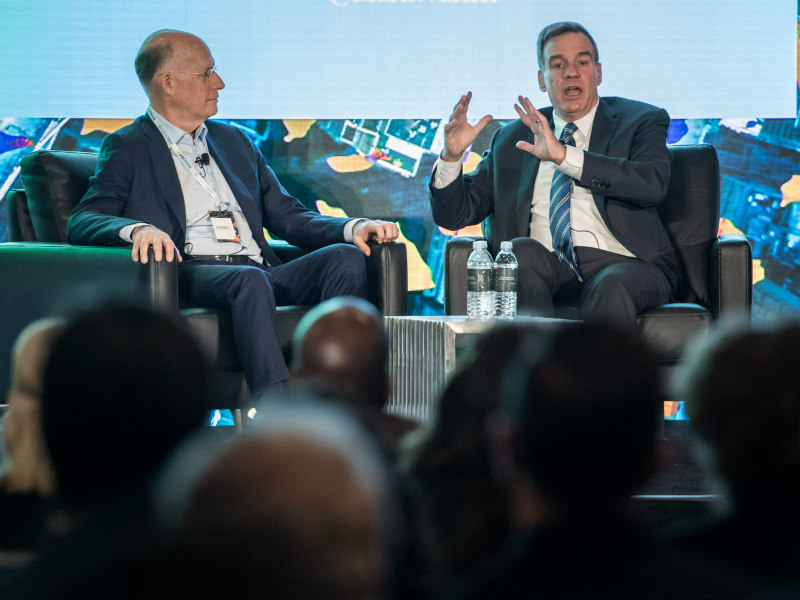Arun Sudhaman 23 Oct 2018 // 5:52PM GMT

WASHINGTON, DC — Senator Mark Warner has called on social media giants such as Facebook, Twitter and Google to provide users with full data transparency as one of the steps to stem the torrent of fake news that threatens to overwhelm democratic institutions in the US.
Speaking to a packed room at the PRovoke18 Global PR Summit, during a session moderated by BCW chairman Don Baer, Warner said that users should be able to see what data the social media platforms hold on them. "These companies love to talk about how transparent they are," he said. "Well let them put their money where their mouth is. The ability to take information and suck it out of all of us and monetize it is their business model."
Warner, who is vice chair for the US Senate Select Committee on Intelligence also pointed to another idea, via a bill that is being introduced in the California Legislature that will give people 25% of the money that social media companies make from their data. He noted that making the platform companies more transparent is a better option when it comes to combating the kind of fake social media activity that had a decisive impact on the 2016 Presidential campaign.
"The platform companies have been amazingly slow to respond," said Warner. "I think for a while they thought this was going away. We're not going away."
Warner also touted competitive forces as a way to break the stranglehold that the major platforms have over social media information. "These companies have such enormous power," he explained. "What's unique is every time we interact with them, we give them new data, in a world where data is the new oil."
That threat is only heightened, he added, by the rise of Alibaba, Tencent and Baidu, "with no restrictions at all on sharing that data with the Chinese government."
"We could introduce that notion that you have data portability," said Warner. "You also have to have interoperability. There might be new platforms that would emerge."
Meanwhile, Warner also called on PR and marketing professionals to consider their own roles in disseminating fake information. "The amount of fraud in the digital advertising space is pretty remarkable. We all need to think about our share of responsibility."
Warner prefaced his comments by describing the epic scale of cyber warfare that Russia is undertaking across the globe. "We've identified that Russian tactics used in America were used in the French presidential elections. The Brits, who were slow to the game, have realised massive Russian involvement in Brexit."
He noted that Russia's efforts are tilting the scale in a world where "most of the conflict in the 21st century will migrate to cyber, misinformation and disinformation."
"We know the Chinese, the North Koreans, have seen these tactics and how cost effective they are."
Other ideas that Warner discussed included reducing anonymity on social media in the ecommerce sphere, and ramping up privacy laws, although he described the EU's GDPR approach as "clunky".


































.jpg)

















